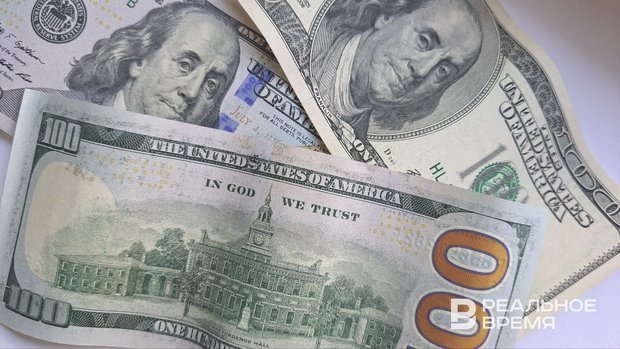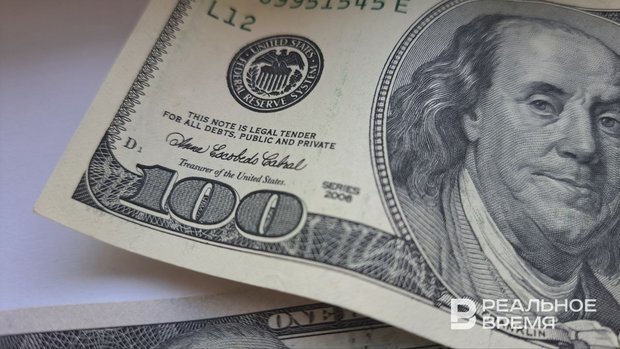Experts: ‘We do not expect significant improvements in terms of discounts on Russian oil in 2024’

The price of Brent oil stabilised at $79 per barrel by the end of this week. Moreover, it remains in the black, despite geopolitical tensions and a decrease in black gold reserves in the United States. However, as Vladislav Kochetkov, the chairman of the Management Board of Finam Financial Group, told Realnoe Vremya, a slowdown in the growth rates of the American and Chinese economies in 2024 may lead to weak dynamics in oil prices, which, in turn, may adversely affect the Russian currency.
“The sanctions pressure will lead to an increase in the Urals discount relative to Brent”
According to Vladislav Kochetkov, in September-October, Urals quotations were about $78-80 per barrel, and in December-January, they fell to $ 62-65 per barrel.

According to the January report of the International Energy Agency (IEA), in December 2023, Russia increased exports of oil and petroleum products by 500 thousand barrels per day, to 7.8 million b/d, which is a record for the previous nine months. Oil supplies increased by 240 thousand b/d by November, to 5 million b/d, and exports of petroleum products increased by 260 thousand b/d.
At the same time, Russia's revenues from oil exports, according to the IEA, fell to a six-month low and amounted to $14.4 billion. The agency attributes the decrease in revenue to an increase in the discount on Russian Urals crude oil and a decrease in the quotations of Brent crude oil.

The price of March Brent crude futures on the London ICE Futures exchange this Friday was $78.98 per barrel, which is by $0.12 (0.15%) lower than at the close of previous trading. On Thursday, contracts rose in price by $1.22 (1.6%) to $79.1 per barrel. Thus, since the beginning of the week, the North Sea mark has risen in price by 0.9%.
According to the US Department of Energy, commercial hydrocarbon reserves in the United States decreased by 2.492 million barrels last week, to the lowest level since October. Stocks at the terminal in Cushing, where Nymex-traded oil is stored, decreased by 2.1 million barrels in a week — the most since September 2023. At the same time, black gold production increased by 100,000 barrels to 13.3 million barrels per day.
“We can see a certain price shock at any moment”
Nikolay Dudchenko, an analyst at Finam, is also confident that the dynamics of oil prices in 2024 depends on geopolitical conditions:
“The dynamics of oil prices in the current year strongly depends on the geopolitical situation. At the same time, as we have already noticed, neither the problems in the Suez Canal, nor the escalation of tensions associated with the beginning of Operation Guardian of Prosperity, and the subsequent missile strikes on Yemen and the exchange of strikes between Iran and Pakistan have yet been strongly reflected in oil prices," he said.
According to the expert, there are two reasons for this:
- the market does not believe in a full-scale expansion of the conflict. For example, the full-fledged involvement of Iran in the war against Israel;
- quite large accumulated reserves of oil and gas.

Dudchenko noted that the tension has not been lifted yet. Therefore, “we can see a certain price shock at any moment”, the expert assures.
“Secondly, the price is, of course, influenced by economic reasons, which this year do not strongly encourage the market to grow. The economy is slowing down, and the United States has significantly increased production, thereby reducing the effect of OPEC+ actions to reduce production. In general, it is extremely important for the United States to try to keep the price as low as possible this year. Elections will be held in November this year, and the Fed needs to try to move to easing monetary policy, which will be difficult to do in the face of rising oil prices and, as a result, rising inflation," he said.
According to Nikolai Dudchenko, the general situation still encourages continued price growth rather than a further decrease.:
“We do not expect significant improvements in terms of discounts on Russian oil in 2024. We see that the United States continues to strengthen its control over the implementation of sanctions and the workarounds used by Russia. Besides, there were also problems with the payment of Russian oil from India. It is reported that in December not a single tanker with Sokol brand oil was unloaded in Indian ports. India is already trying to exploit this situation by insisting on providing further discounts on Russian oil, the analyst said.

Besides, high oil prices, according to Dudchenko, will help contribute to the fullness of the Russian budget.
“Despite the growth of non-oil and gas revenues in 2023 (revenues amounted to 20.3 trillion rubles), oil and gas revenues still occupy a third of the revenues of the Russian budget. In 2024, the Ministry of Finance needs to increase the revenue side of the budget by 20%, while it is expected that the share of oil and gas revenues will increase to almost 33%. Thus, high oil prices will contribute to budget fullness, reducing the deficit and, accordingly, vice versa," he concluded.
“The current ceiling for Russia of $60 per barrel does not work”
Vitaly Gromadin, the asset manager at BCS World of Investments, believes that current oil prices are lower than expected when calculating the budget for this year. At the same time, according to him, in the spring they may decrease several times more:
“Current oil prices are lower than expected when calculating the budget for 2024. At the same time, it may well happen that prices will go much lower in the spring if Saudi Arabia decides to teach discipline to the participants of the OPEC+ organisation. This will happen if exporting countries do not meet production quotas satisfactorily. But in this scenario, low prices will not last long, until a new OPEC+ deal to balance the market. The average prices for Urals will be $60-70 per barrel," the expert said.

Gromadin is also confident that the introduction of new sanctions against Russia may lead to an expansion of the Urals discount relative to Brent:
“Sanctions pressure on Russian oil companies may increase, as the current ceiling for Russia of $60 per barrel does not work. New sanctions at the moment may also expand the discount of Urals to Brent, as was observed in 2022. And at the same time, the negative effect on the revenue of Russian oil companies may be moderate, since oil prices on international markets may rise due to the risks of loss of Russian volumes," Vitaly Gromadin stressed.